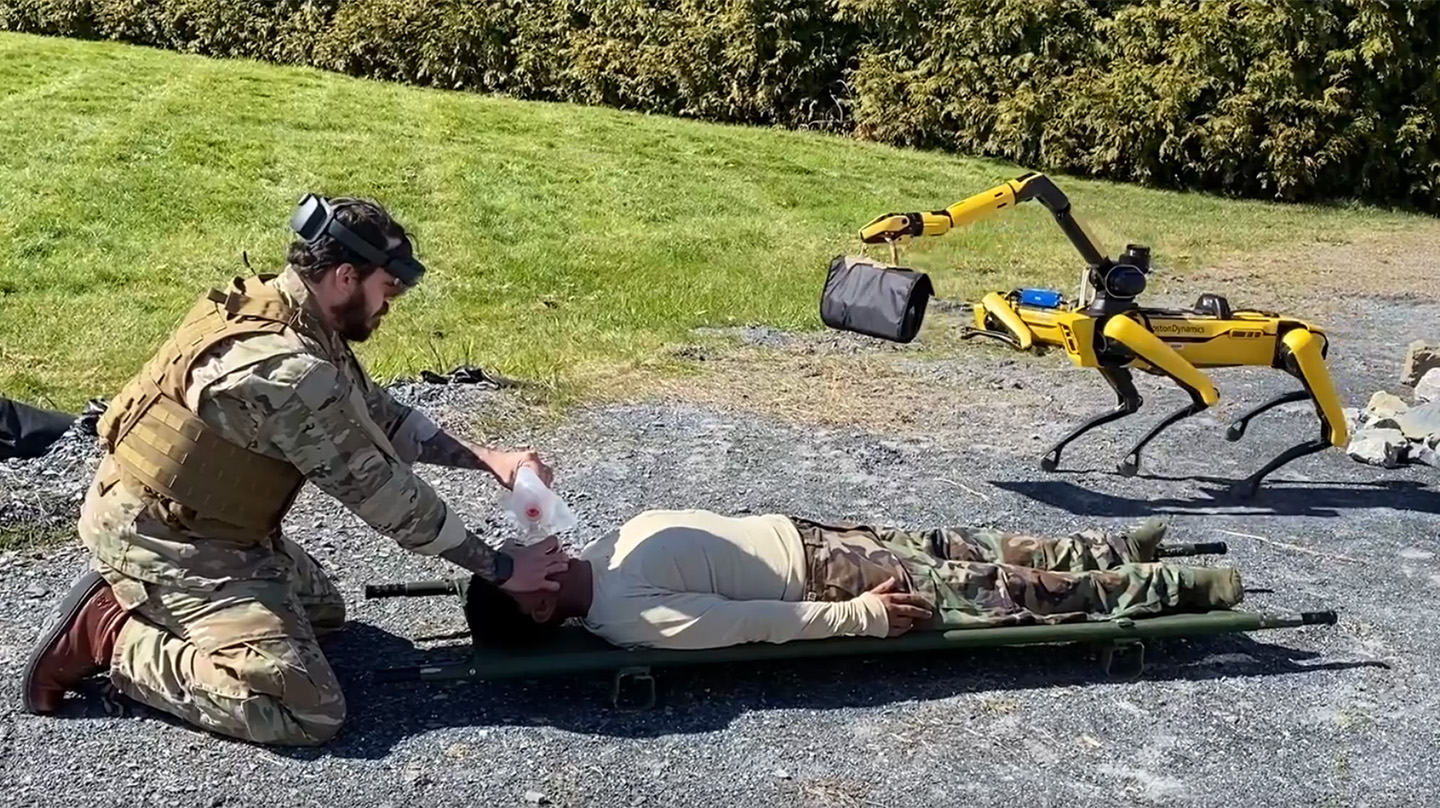News — An innovative new capability being developed by the Johns Hopkins Applied Physics Laboratory (APL) that combines the abilities of human medics with virtual and robotic assistants has been recognized with an honorable mention in the Rapid Response category of .
Medical first responders have dangerous and demanding roles in conflict and humanitarian crisis situations. As the nature of warfare changes and disasters continue to endanger large populations, military and civilian medics could be called upon to provide critical care at an unprecedented scale.
APL’s research initiative explores new ways that artificial intelligence, augmented reality and robotics can support collaborative intervention by teams of medics, and extend a first responder’s reach and effectiveness under challenging circumstances.
“This work has the potential to provide real impact on the challenges facing medical personnel and first responders in some of the most complex and dangerous environments in the world,” said APL Director Ralph Semmel. “The Laboratory and our incredible staff continue to focus on creating new research and technology breakthroughs that contribute to our nation’s security and well-being, and we are proud to see this impressive work and its potential impacts recognized.”
During a technology demonstration and related research conducted in collaboration with the Army’s Telemedicine and Advanced Technology Research Center (TATRC), APL and TATRC researchers led scenarios where robots retrieved medical supplies and monitored patients, among other critical support tasks, using a combination of robot autonomy and remote control.
This physical experiment demonstrated that these technologies can help human medics render more assistance for more casualties over longer periods of time, and that implementation of an integrated solution has the potential to save lives and improve the overall health of patients. This effort leverages ongoing research at APL sponsored by the Army Research Laboratory and the Army Artificial Intelligence Innovation Institute on adaptive human-robot teaming.
A panel of Fast Company editors and reporters selected winners from a pool of more than 1,300 entries. Rapid Response was one of many categories across climate, social justice, wellness, politics, technology, corporate social responsibility and more. The World Changing Ideas seek to elevate finished products and bold concepts that make the world better.
This honor builds on Fast Company’s recognition of APL technology breakthroughs as World Changing Ideas, having awarded several projects in 2020, 2022 and 2023. The Laboratory has also earned five consecutive placements on the magazine’s Best Workplaces for Innovators list and was most recently selected as one of Fast Company’s Most Innovative Companies in 2024.


